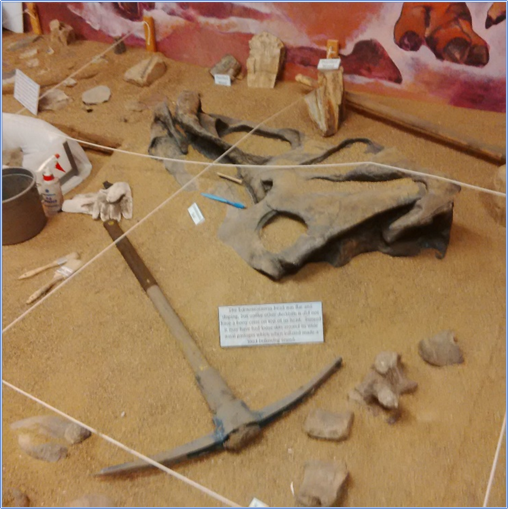Today’s sermon has been adapted from a message written by David Sparks that the United Church of Canada is sharing with all congregations that are part of our denomination:
“The church, our church, The
United Church of Canada, has deliberated, the church has wrestled with some
different concepts, the church has come to a conclusion, and now we have a Call
and Vision, endorsed by the 43rd General Council.
Here it is: “Deep Spirituality.
Bold Discipleship. Daring Justice.”
These six words are our call
as a United Church. And they go with a vision:
Called by God, as
disciples of Jesus, The United Church of Canada seeks to be a bold, connected,
evolving church of diverse, courageous, hope-filled communities united in deep
spirituality, inspiring worship, and daring justice.
Sounds great, sounds
challenging, but whatever has it to do with Transfiguration Sunday, the
mountaintop experience of Jesus and the disciples?
Well, we celebrate the last
Sunday of Epiphany, which is the season of ‘a -ha’ or eureka moments, the
season of light coming into the chaos of this world and giving new insights,
new visions of what it means to be a Christ follower. Today we reflect on what
it means to be a disciple. The mountain
top encounter was a hugely important experience in the lives of Peter, James
and John, almost as important as the easter resurrection.
Wait a minute, “hugely
important,” but was this a historical incident, were there historical incidents
where God actually spoke on mountaintops, or has another story about how Moses
talked to God been modified by the gospel writer Matthew?
Wrong question!
This is not just a story of
some guys going on a hike. It became supremely important to them, to get to
understand who Jesus was, what he was about, and what his mission was. It was so breathtaking that Peter, James and
John didn’t know how to respond, they were filled with questions, excitement
and adrenalin with their new experience.
To go back to the new United
Church Call and Vision, the story is reminding us that it isn’t the state of
the economy that matters most, or our financial or workplace success, it is
what we have going for us in the realm of spirituality, deep spirituality. The followers
found Jesus to be unlike anyone they had ever met, and he became central to
their quest for spiritual learning. They
became inspirations for our own spirituality. And more than that, we are united
in our spirituality. We find it, we are silent with it, we pray it from the
bottom of our hearts, and we share it in the faith community. The spiritual is
a hopeful faith-shared sphere of our existence, and it matters hugely. There are times we talk about it, like in our
first reading today, and there are times we have to process it, waiting for the
right time to share it, just as the disciples were told by Jesus not to share
just yet.
This may be a deep spiritual
experience, but how did they move from spirituality into boldness?
Okay, remember you are not
dealing with history. This is likely a very good story, and we only have read 1
Peter to see that he went from confused tent raiser to ardent writer and
speaker.
Throughout Matthew’s gospel
the training and work of the disciples has a prominent place. Not far into the
gospel of Matthew (Matt. 10:9‒15) there is an account of the training program
for the disciples, and it even includes a section on what to do when rejection
comes your way. That’s great training!
The Call and Vision talks
about bold discipleship. Bold―not perfect!―and that is what is made clear in
the gospel record. As the early church finds its feet, disciples emerge and
grow, sometimes not very expertly in their committed following of Jesus.
But what about now?
If ever there was a time for
developing a bold program for local evangelization, using Facebook and other
social media, it is today (or maybe yesterday!). If ever there was a time to go
out in twos and knock on doors and tell people, “The church is alive; this is
what the church is really about, not what the media often says it is about,” it
is now! You could try it!
Fair enough! But what about
“Daring justice”? Do we have some daring justice stories that tell what the
church has been up to recently? Our local church or the national church with
Mission and Service stories?
Actually, we have. We help
raise money for Lee Thunder’s headstone, and we are building safe space for
youth in our community who are isolated and alone. We have talked about and
advocated for homeless initiatives in Athabasca, and started a youth group for
kids who need a safe space to be kids. We helped kickstart food programs for
kids at the high school and are a part of Athabasca PRAAC. We talk about racism, sexism, homophobia and
other forms of discrimination. We
partnered with the Library to bring back the Blanket Exercise to Athabasca.
So to sum it all up, what
emerges from the ancient story of transfiguration as it relates to the Call and
Vision statement?
What we have in this story
in the Epiphany season, what we as church people have in the mountaintop
experience, is of huge fundamental importance.
It calls on us to take the
Call and Vision statement seriously.
It calls us to deepen our
spirituality. It calls us to be emboldened as disciples. It calls us to be
daring as we strive for justice.
Are you up to the challenge?
Am I? Amen
© 2022 The United Church of
Canada/L’Église Unie du Canada. Licensed under Creative Commons Attribution
Non-commercial Share Alike Licence. To view a copy of this licence, visit
http://creativecommons.org/licenses/by-nc-sa/2.5/ca. Any copy must include this
notice.




